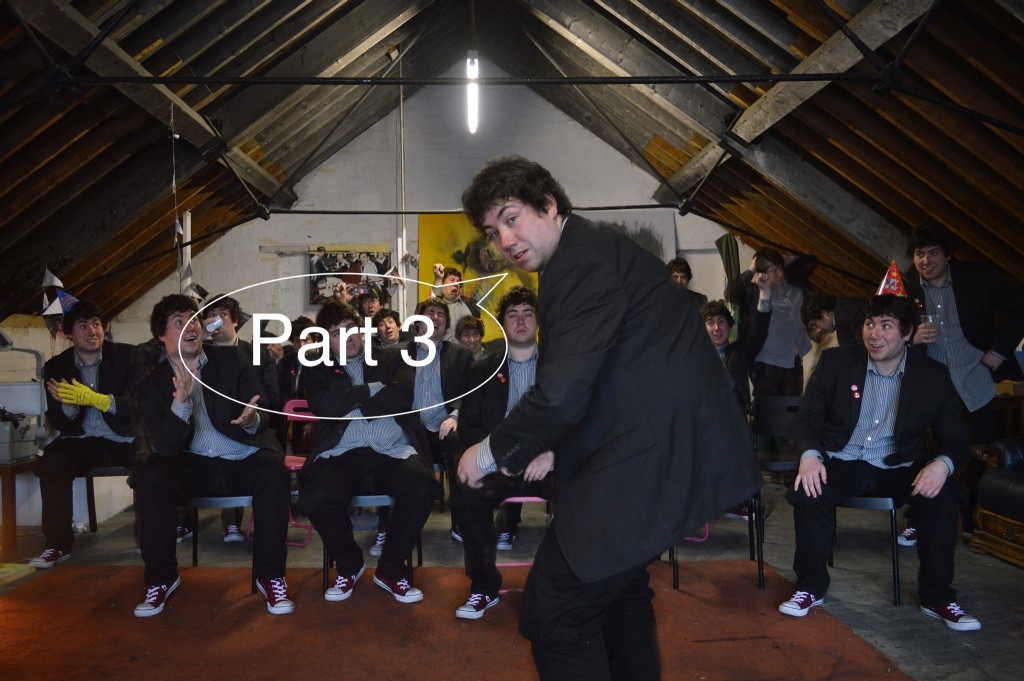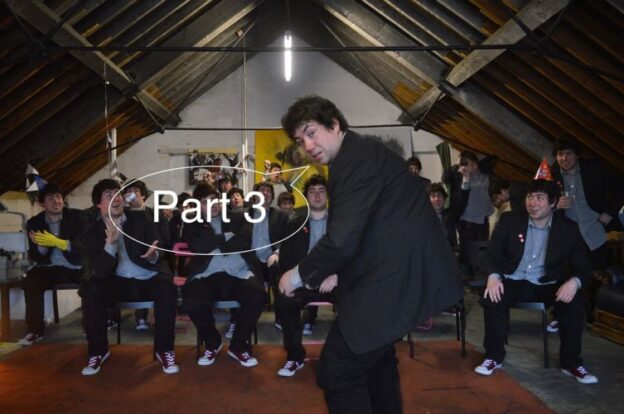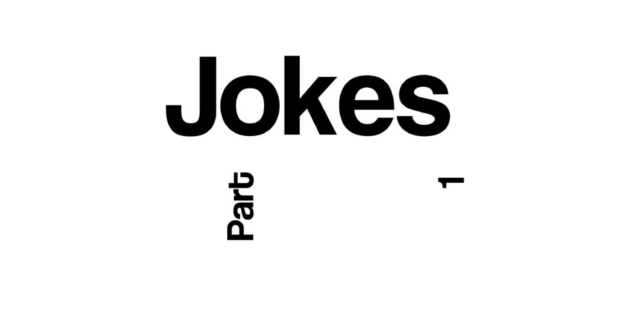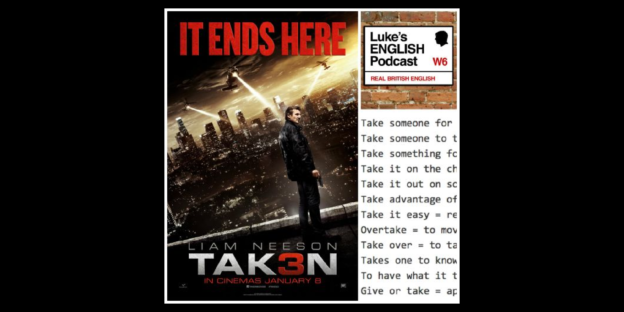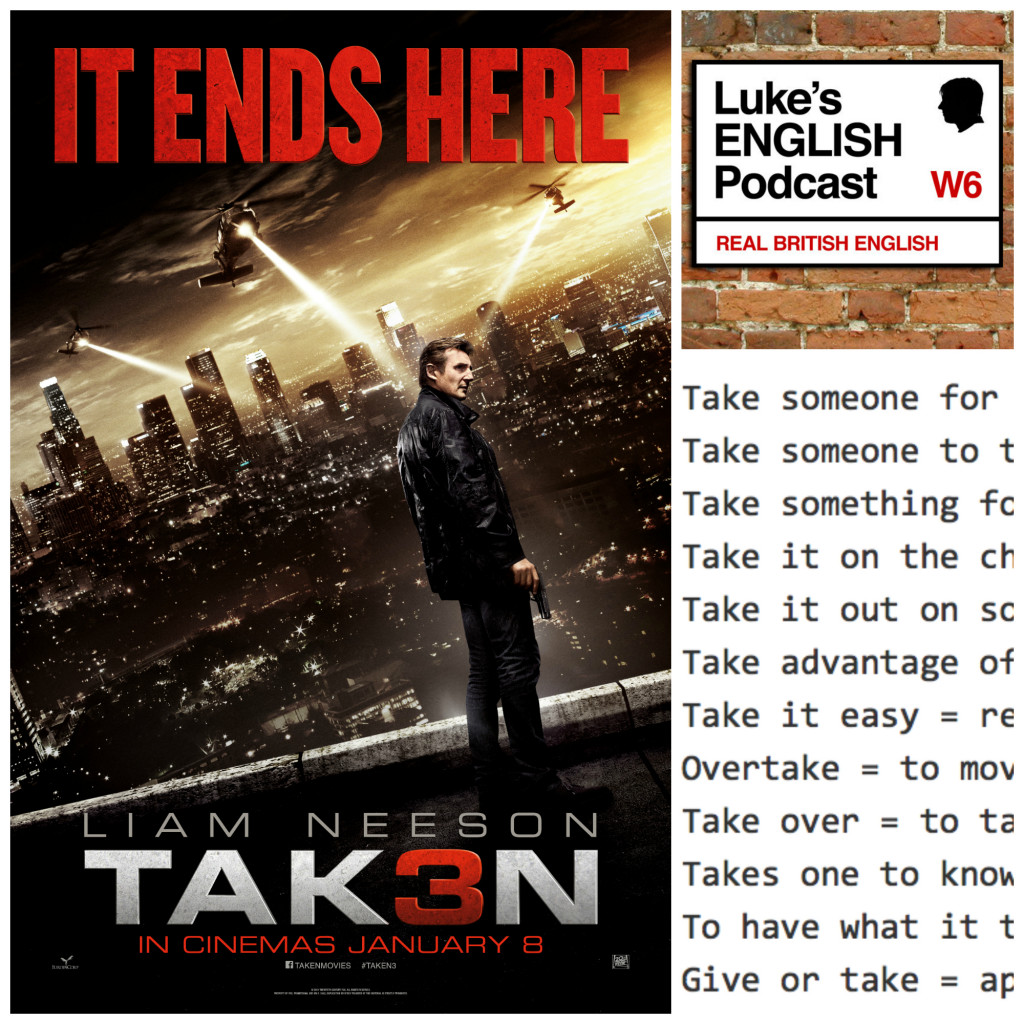This episode is all about telling jokes, not as a comedian on stage, just in your normal life. Telling jokes is something that everybody does, in countries and cultures all around the world. We all love to make jokes, hear jokes and have a bit of a laugh. For me, jokes are fun and fascinating but I know that for non-native speakers of English they are also notoriously difficult things to manage. If English isn’t your first language, it can be difficult to understand jokes, find them funny, and also to be able to tell them effectively.
[DOWNLOAD] [PART 2] [PART 3]
Contents of this Episode
So, in this episode I’m going to tell you everything you need to know about jokes in English, and that includes these things:
What is a joke? (as if you didn’t know)
When/why do we tell jokes?
How do we tell jokes? What are the golden rules for telling a joke properly?
What’s the normal way to respond to a joke?
What are some the typical joke structures? (so you know how to identify a joke)
What are some jokes that you can remember and share with your friends?
So this is not just going to be a guide to jokes and the way they are told, you’re also going to hear lots of jokes too – I’m going to read out loads of jokes, and explain them to you. So that means that you’re also going to learn a lot of vocabulary during the episode – because often jokes are based on the specific meanings or double meanings of words.
Most of what I’m saying to you here is written on the page for this episode – that’s right, there’s a transcript for most of this, so if you want to read what I’m saying – you can. Just find the page for this episode at teacherluke.co.uk.
 Not all of it is scripted because I expect I will go off script and say some spontaneous stuff too, but most of it is. That’s nice isn’t it? Yes it is. Mmm, very nice. I went to quite a lot of effort to prepare this episode in advance and I hope that’s obvious. It should be full of genuine insights. If you find it useful, you could consider making a donation by just clicking one of the yellow ‘donate’ buttons on teacherluke.co.uk. That is entirely optional and completely up to you of course! No pressure!
Not all of it is scripted because I expect I will go off script and say some spontaneous stuff too, but most of it is. That’s nice isn’t it? Yes it is. Mmm, very nice. I went to quite a lot of effort to prepare this episode in advance and I hope that’s obvious. It should be full of genuine insights. If you find it useful, you could consider making a donation by just clicking one of the yellow ‘donate’ buttons on teacherluke.co.uk. That is entirely optional and completely up to you of course! No pressure!
I expect this will be more than just one episode because it’s quite a big subject, and it’s a subject which is close to my heart so, naturally I have loads of things to say about this!
It might be the case that I do this first episode as an introduction to the subject of jokes, and then in subsequent episodes I’ll go through my list of jokes, and then explain them. That’s right, I’ve prepared a list of jokes. It’s quite a random list and hasn’t been fully tested for quality. It’s just a selection of jokes which I’ve managed to write down, or poach from other lists on the internet. I’ll tell you all those jokes either in this episode, or in separate episodes, depending on how long this all takes.
So this could be another series of episodes of the podcast. There’s so much to talk about and to share.
I’d also like to do an episode about telling jokes on stage and how to do stand up comedy, because stand-up is also a fascinating topic and one that more and more people are getting interested in. Telling jokes on stage is quite a different topic, so that’s another episode for another time.
I love jokes
I really do. I love hearing them and I love telling them. I love the way jokes exploit double meanings in language. Often a joke is based on a word that means two things at the same time, or two phrases that sound exactly the same. Or a joke might be a little story with a surprise which is revealed at the end. So jokes allow us to have fun with the little holes and coincidences that exist in languages. They’re like little language glitches – moments when your brain has to deal with a sudden change in meaning or something that has two meanings at the same time.
I love the surreal world of jokes – the way the normal rules can be broken – rules of language, but also the rules of physics, and behaviour too. Jokes often bend the rules of reality in order to make the punchline work. They lead you in one direction, and then suddenly surprise you with something completely different, and the only link is that the words sound the same.
What am I talking about? Here’s an example of a joke in which the punchline has two meanings.
A hole has been found in a nudist camp wall. The police are looking into it.
To get this joke you need to know that the phrase ‘to look into something’ can mean “to investigate” and also to literally “look inside”. So, someone found a hole in the wall of a nudist camp. A nudist camp is a place where people can enjoy spending time with no clothes on, in the nude. Someone found a hole in the wall and the police are investigating it, but they’re also just looking into the hole.
OK.
A hole has been found in the nudist camp wall. The police are looking into it.
I’ve said it before and I’ve said it again – explaining a joke kills the magic.
“Explaining a joke is like dissecting a frog. You understand it better but the frog dies in the process.”
― E.B. White
So, explaining a joke may allow you to understand it, but the joke dies in the process – you probably won’t laugh after it’s been explained. Jokes work best when they are instantly understood. It has to be instant. This is why jokes are often lost on non-native speakers, which is a pity.
However, here at Luke’s English Podcast I have a mission – and that is to try and make you laugh while you learn, and if I can’t make you laugh I’ll certainly aim to teach you something. So even if you don’t find all of the jokes I’m going to tell you (later) funny, then that doesn’t matter, because in the end you’ll learn some double meanings and you’ll be more ready to laugh in the future, because I’m going to explain lots of jokes for you. I expect that many frogs will die during the recording of these episodes…
What was I saying? That’s it – I love jokes!
Jokes can be stupid, brilliant, pointless, dangerous, harmless, disappointing, unexpected, light-hearted, dark, bizarre, rude, intellectual or even illegal.
Jokes can be just a bit of fun, or they can be used to make serious and critical points. They can be very complex things when you examine them but ultimately, jokes are about fun and laughter – and what is wrong with that?
There are all sorts of social rules that surround the telling of jokes.
They’re little bits of language, wrapped up in culture, presented via small social rituals.
Jokes, and humour in general, are often the most difficult aspect of a language to appreciate. The ability to appreciate humour is one of the last things you gain as a language learner.
To get a joke you need to be able to hear the individual words spoken, identify them, understand them, spot the punchline, grasp the pun or word-play and then know how to react appropriately, and this all has to happen instantly. Perhaps most importantly – you need to have identified that it was a joke in the first place, and not just another couple of sentences that you didn’t really understand. It can be even harder to deliver a joke – remembering the specific words, getting the timing right, emphasising the relevant words correctly using sentence stress and intonation. Oh my god! It’s complicated.
Imagine this situation – I’m sure you’ve experienced something similar. You’re in a group of people. They’re all native speakers and you’re not. One of them is speaking rather quickly but you can basically follow what’s being said – even the complex words and bits of grammar. You feel quite proud of yourself “I’m understanding all of this!”. Then the guy says something and everyone bursts out laughing, but to you it just sounded like another sentence. What’s wrong with everyone? Then it becomes clear that he just told a joke, and apparently it was a good one. “Was that supposed to be funny?” You think to yourself. Someone explains the joke to you – you think about it, you get it, but it’s just not that funny! It’s not even clever! Why did everyone laugh so much? Is everyone else weird, or is it you?
The fact is, jokes can be hard to get, and after it’s been explained to you the magic has probably gone. You’ve got to understand it 100%, and instantly. That’s why non-native speakers of English are often not very impressed by humour in English. Jokes don’t usually translate into other languages because they are based on specific sounds or similarities between words. Also the delay in understanding a joke can kill the enjoyment.
I’m not saying that non-native speakers don’t get humour in English. I know they do. Sometimes I make my students laugh a lot, although this is matched by the number of times my student don’t even identify that I’ve told a joke – is that their lack of English, or my bad jokes? A combination of the two I expect. So, even though non-native speakers clearly do laugh at a lot of things in English, I’m well aware that a lot of things are completely lost on them too.
I think that you (as learners of English) need to understand jokes – because it can help you socially, but also because you’re missing out on a lot of fun. That’s why I’ve decided to do this episode.
But don’t expect this to be a particularly funny episode! There’s nothing worse than high-expectations for a joke. If your expectations are too high, you won’t laugh. It’s like when someone says, “I’ve got a really great joke, you’re going to love this!” then the joke is never that funny. So, don’t get your hopes up. Despite the fact that this episode is all about jokes, it’s probably best if you realise at this point that there will be no laughs and no fun in this episode at all. OK?
DO NOT EXPECT LAUGHTER!
What is a joke?
It’s just anything said that is intended to produce laughter. It could be a traditional joke structure, or a comeback, a sarcastic comment or a small story or whatever. If it is intended to produce laughter, it’s a joke.
Vocabulary
There are a few words that you should know. They’re all different types of joke, or just related to jokes in some way. Here they are:
*a pun = a word joke – a short joke that is based specifically on two words/phrases that have the same meaning or sound the same. For example, “Did you hear about the guy whose whole left side was cut off? He’s all right now.”
[‘All right’ = okay, but also, ‘all right’ means ‘only the right’ – in this case, he only has a right side now because his whole left side was cut off. Yes it’s ridiculous. Yes, I like it.]
*a gag = just another word for a joke
*a shaggy dog story = a longer joke with a stupid punchline at the end (e.g. The Pink Gorilla Story or The Prawn Story)
*a one liner = a simple one line joke. E.g. “Conjunctivitis.com – now that’s a sight for sore eyes.” [Don’t get it? Don’t feel bad. Conjunctivitis = a health condition in which your eyes are infected and painful, or ‘sore’. The expression “a sight for sore eyes” = something which you are really glad to see, because you need it. e.g. “You’re a sight for sore eyes” = I’m really glad to see you (maybe because you’re attractive and nice, and I’m bored and surrounded by uninteresting people). Also “site” and “sight” sound the same. Here, ‘conjunctivitis.com is a website for people who have sore eyes. It’s literally a website for sore eyes, and I suppose it’s something you’re glad to see if you have conjunctivitis.] And if you’re in any doubt about the funniness of that joke, it won the “Joke of the Year” award in 2012. That’s an award which is given to the comedian who makes the best joke of the Edinburgh Fringe Festival which is one of the world’s biggest comedy festivals. It was written by Tim Vine, one of the UK’s top comedians. Click here to read more on this story.
*a wisecrack = a clever and funny response
*a comeback = a quick response to a criticism. Winston Churchill was famous for his comebacks. “Mr Churchill, you’re drunk!” “Yes, I am. And you’re ugly. But in the morning I shall be sober. But you will still be ugly.”
or “Mr Churchill, if I was your wife I would put poison in your tea!” “And if I was your husband, I’d drink it!” etc.
*witty (adj) = to describe someone who is funny and able to make quick and spontaneous jokes.
*the setup = the first part of a joke which sets the situation and linguistic context
*the punchline = the funny part of the joke, which is delivered last. E.g. “I couldn’t quite remember how to throw a boomerang” = the setup, “but eventually it came back to me.” = the punchline. [‘come back to me’ literally means ‘return to me’ – like a boomerang does, but it also means ‘remember’]
*a dad joke = a stupid, safe and rather bad joke. The kind of thing your dad would tell you. To be honest, most of the jokes in this series on jokes are dad jokes. They’re not very dangerous or cool. They’re pretty disposable, but they’re fun, and sweet.
Where do jokes come from?
Most jokes just seem to exist in people’s consciousness and nobody knows who wrote them. They get shared orally (or maybe written in emails) and get passed around, but nobody really owns them. When I was a kid, my friends and I used to own joke books. They were compilations of jokes. You could buy these huge books filled with hundreds or thousands of ‘knock knock’ jokes. We used to go around telling them to each other. There were so many. Sometimes I heard some pretty rude jokes too – jokes that involved sexual things that as a child I just didn’t understand. That was a weird way to be introduced to some aspects of sexual depravity – within the context of a joke told by a naughty kid at school. Only later would I understand what they actually meant.
Then there are jokes which have been made up by someone, like a professional comedian – like the conjunctivitis joke. Those ones are actually owned by those comedians and used in their stage performances, and when you tell one of those jokes it’s customary to say whose joke it is – “That’s a Peter Kay joke” or “That’s a Tim Vine joke” for example. It’s a surprisingly difficult skill to be able to write really good jokes. If you can do it well, it can make you quite rich. Some of the best comedians, writers and directors started out by writing jokes for other people. For example, Woody Allen, Steve Martin and David Letterman.
Then there are original jokes made up by people on the spot. If you’re a clever you might be able to come up with jokes spontaneously – and people might consider you to be ‘really witty’ (positive) or perhaps just a ‘smart aleck’ (negative) depending on how well received your jokes or funny comments are.
Mainly in this episode we’re talking about the first category of joke – ones that lots of people know, have no ‘owner’ and which get passed around by word of mouth. As I said, I’ll be sharing loads of them with you later in this episode or perhaps in the next one.
A lot of these jokes which are shared by friends have typical structures, which most people know. Like “Knock knock” or “Doctor Doctor” jokes.
There are also social conventions around joke telling that you need to know, for example – how to tell a joke, how to react when someone tells you a joke, how to identify when someone is joking and how to respond to a joke.
For example, if someone says to you,
“What’s the difference between a photocopier and the flu?”
You shouldn’t try to guess the answer. “Err, well, one is a kind of machine and the other one is a virus. They’re really different actually. Why?”
No – this is the wrong response. The person is clearly telling you a joke. You’re supposed to say “I don’t know” and then wait expectantly for the hilarious punchline.
“What’s the difference between a photocopier and the flu?”
– “I don’t know”
One makes facsimiles; the other makes sick families.
“Haha, good one!” you say, even if it wasn’t that good.
Telling and hearing a joke is like a little social interaction with its own specific rules and conventions that you have to know. We’ll look at this more later.
What’s the point of telling jokes? Why do we tell jokes?
It’s all about laughter and how it makes us feel good. According to Helpguide.org – a trusted non-profit online service giving advice about mental and physical health, Laughter is good for your health. “Laughter is the best medicine”.
According to them:
Laughter relaxes the whole body. A good, hearty laugh relieves physical tension and stress, leaving your muscles relaxed for up to 45 minutes after.
Laughter boosts the immune system.
Laughter decreases stress hormones and increases immune cells and infection-fighting antibodies, thus improving your resistance to disease.
Laughter triggers the release of endorphins, the body’s natural feel-good chemicals. Endorphins promote an overall sense of well-being and can even temporarily relieve pain.
Laughter protects the heart. It improves the function of blood vessels and increases blood flow, which can help protect you against a heart attack and other cardiovascular problems.
The link between laughter and mental health
Laughter dissolves distressing emotions. You can’t feel anxious, angry, or sad when you’re laughing.
Laughter helps you relax and recharge. It reduces stress and increases energy, enabling you to stay focused and accomplish more.
Humor shifts perspective, allowing you to see situations in a more realistic, less threatening light. A humorous perspective creates psychological distance, which can help you avoid feeling overwhelmed.
Social Benefits
Strengthens relationships
Attracts others to us
Enhances teamwork
Helps defuse conflict
Promotes group bonding
Jokes are crap, aren’t they?
You might be thinking: “But jokes aren’t funny. I sort of hate jokes. They’re usually awful and I don’t laugh.”
Yes, true. They’re often terrible – like the bad puns that your Dad tells you, or the awful jokes you get on lollipop sticks or inside christmas crackers, but that’s part of the charm really. It’s just a bit of fun – stop taking life too seriously! Kids like them of course, because kids don’t like to take life too seriously, and because most jokes are brand new to children. Also, when you’re a kid is when you are learning about the language and discovering any double meanings can be quite exciting. For me, it’s all about having the right attitude and being ready to laugh and find things funny. If you want to laugh at jokes, you will.
When to tell jokes
I suppose the best jokes are the ones that are spontaneous (made up on the spot).
They are usually received best when they are shared in light-hearted joke telling sessions, when everyone is telling jokes. Sometimes that happens – someone tells a joke and then everyone chips in with a joke they know. Like, “I’ve got one” or “Have you heard this one?” That way you’re not forcing your joke on someone who then feels pressure to laugh at a joke they might not find funny or understand.
Be careful of using them to impress people, break the ice or to charm people, like in a business meeting or on a date. They might have the opposite effect. You have to know when to tell jokes. Normally it’s in a moment where there’s no pressure.
The best results come from comments, or responses that happen spontaneously. If people feel that a joke is too planned or contrived – like you’ve planned it for days or weeks in advance, you’ll look like a prat. So, the best jokes are just unplanned comments that happen in that moment.
So, because the funniest things are spontaneous, it’s all about having the right attitude – being open, looking for the funny side of things, being self-deprecating (laughing at yourself), being sarcastic, joking about things that everybody experiences, not picking on anyone in particular, and wanting everyone to be happy and to enjoy themselves.
Jokes are often best told privately. For example, not announcing a joke to the whole room, but sneaking up on someone and sharing it just between you both, quietly.
Jokes can be risky
You might embarrass yourself or others if the joke is not funny or if you ‘fluff it’ – say it wrong.
Watch out for the content of jokes. A lot of them are pretty rude – and I don’t just mean sexually. They often have victims, or could be very politically incorrect. You could offend people and get yourself into serious trouble, depending on the context and the joke of course.
Watch out for these things: jokes about nationalities, jokes about disability, jokes about blondes, jokes about race, sexist jokes or jokes with rude images. I realise that I’ve just deleted most of the best jokes – but the point is, don’t underestimate how offensive a joke can be. Some people might laugh, some might not understand it, and some will take it seriously and be offended. Also, in some places, jokes are outlawed, especially if they are political in nature. So – be careful when joking.
The right joke at the right time makes everything ok.
The wrong joke, told at the wrong time in front of the wrong people could land you in serious trouble.
So:
be spontaneous
don’t pick on anyone in particular – don’t victimise anyone
be prepared to make jokes about yourself
make jokes about things that everyone is experiencing/sharing
How do you tell jokes?
Perhaps the most common structure for a joke is the Question-Answer format. That means that a joke often begins with a question. It’s quite normal to just ask someone that question, and if they’re familiar with the culture of telling jokes, they will respond with “I don’t know” and then you deliver the punchline.
E.g.
“Hey, how does Bob Marley like his donuts?”
“I don’t know”
“Wi’ jam in”.
“Do you get it? ‘With jam in’ – ‘we’re jamming”
“Ha ha oh yeah, I get it! Nice one!” etc.
So, at the right moment you can just tell your joke by asking the question like that.
Sometimes you can say “I’ve got a joke for you” or “Do you want to hear a joke?” or “Have you heard the Bob Marley joke?”
Try not to say “I’ve got an absolutely hilarious joke – you’re going to absolutely love this!” – because the person will expect too much and it’s bound to be an anticlimax.
Timing is important. It also has to be really clear. It has to be comfortably and easily told.
Make sure you learn it properly! The set-up has to be exactly right, and the punchline too!
Make sure the set up is not too long. It has to give only the most crucial information for the punchline to work.
Make sure you know your joke well, because there’s nothing worse than telling a joke wrong, or forgetting the punchline. It’s the equivalent of a magic trick going wrong – you look like a fool.
Don’t expect much of a response, and don’t expect your joke to make you popular or anything. The chances are, people won’t get it, and if they do laugh, they’ll probably just forget about it, unless the person is a joke fan like you. In the right moment though, jokes can be a lot of fun. So, jokes are not worth a lot, unless you find other people who love them, and then you can share your favourite jokes together.
When telling a joke – remember it! Run the joke through your head before saying it. Don’t get halfway through the joke and then start again because you forgot it.
Make it clear and be confident. People have to be able to hear and understand what you’re saying.
Sentence stress is very important. Usually certain words must be stressed for emphasis.
Make it look quite casual. Don’t be too desperate for a response or laughter.
The best jokes are completely improvised comments made in the moment. Sometimes there is nothing better than a very carefully worded quick response to a situation. It can make everyone burst out laughing quite magically. But again – watch out because jokes can backfire. People may find it offensive, inappropriate or just pathetic.
There are risks in joke telling. You risk losing respect from people, or offending people, but the rewards are high. If you make people laugh, they will like you, and ultimately everyone can enjoy a good laugh – and there’s nothing wrong with that. In fact, sometimes it’s the best, most honest feeling in the world – just letting yourself go and laughing uncontrollably. It’s joyful and infections, and being able to create it is a bit like being a good wizard (not an evil one).
Choose to tell good jokes which have a proven track record. Don’t tell jokes that don’t make people laugh, even if you find them funny yourself.
Don’t tell inappropriate jokes – ones that are sexual, racist or which have a victim. Instead try to tell jokes that are universal. Rude jokes can be very funny, but be aware that they are only appropriate in certain situations, and only funny for certain people.
Don’t get all angry, upset and defensive if people didn’t enjoy your joke. You can’t bully people into enjoying themselves. Just shrug it off.
You need to make it clear when the joke has ended and when people are expected to laugh, although don’t expect it to happen.
If you’re going to make a joke, try to connect it to what’s going on at that moment.
Often the best jokes are just one line responses to things happening around you.
Jokes are often best delivered with a straight face, with an understated style. Don’t make a big song and dance out of it. In the UK we normally tell a joke quite straight. We don’t laugh at our own jokes or slap our thigh when we tell the punchline. Laughing at your own joke too much is considered a bit unattractive.
Be prepared to carry on if the joke fails to make people laugh – people might not notice! Otherwise, it’s probably worth admitting that you told a joke and nobody found it funny. Then people will feel less awkward. Sometimes when I tell jokes, nobody laughs. Then I say “that was a joke, by the way, just in case you are wondering” and that sometimes makes people laugh a little bit – maybe out of sympathy if nothing else!
I realise I’m sounding a bit modest here – it may look like I spend all my time embarrassing myself with dodgy jokes. Well, it does happen sometimes, but not all the time.
English people love humour and it’s used a lot, for a lot of different purposes – including breaking the ice, as well as establishing power structures or social hierarchies, or breaking down social hierarchies.
I’m sure it’s similar in your countries too. Kate Fox says that for the English there is no right or wrong time for humour. I know what she means, but I don’t think it’s strictly true. We love joking in many situations, and we’re always ready for a joke or a funny/sarcastic comment, but of course there is a right or wrong place for it. If you just go around making crap jokes all the time, in every situation, you’ll soon become unpopular. I suppose what Kate Fox means is that humour, rather than jokes, pervades all aspects of British life and I agree with that.
The main thing is the intention you have behind your jokes – are you doing it to make people feel happy, to bond your team, to put people at ease, or are you doing it just to draw attention to yourself at the expense of other people’s comfort? If it’s the latter reason, then it’s probably better to curb your enthusiasm a bit.
Really, being funny is more about having the right attitude – being ready, prepared and confident enough to find the funniness in anything.
It’s also about being generous – just wanting to make people laugh without spoiling the situation.
It’s not about cruelty – bullying or targeting people with humour. It’s not picking on other people too much. It is about being willing to take a joke yourself. That’s the first step.
Some people just don’t want to be a person who jokes – they’d rather be serious and expect people to take them seriously too. That’s fine of course. Personally, I think that many of us take life too seriously – and a good sense of humour and the ability to take a joke are admirable, positive qualities. It’s hard to be a genuinely arrogant person while taking a joke about yourself. It’s a good leveler. It makes people equal in status.
Really, it’s just about having an attitude for laughter and jokes. For me it’s best when it’s sort of selfless.
There’s also a love of language involved. Sometimes jokes come out of picking the right words, or playing with language.
One advantage of a good joke is that people’s guard goes down when you make them laugh. You can say some outrageous things and get away with it. Also, people will warm to you if you make them laugh. It’s charming. Good jokes are harmless (and should be).
Also, there are all the benefits of laughter.
How do you react to a joke?
The worst thing you can do is not recognise it is a joke.
It’s also bad if you don’t acknowledge that a joke has been told. You have to show that you identified it as a joke, at the very least.
Some acknowledgement is good.
Ideally you’ll laugh naturally. You could fake a chuckle but don’t go over the top. You could say “good one”, or even “that’s a good joke!” (without laughing)
If you don’t understand it you say: “I don’t get it.”
If you’ve heard it before: “I’ve heard it before.”
If you understand the joke, but don’t find it funny: You can make a noise, like you’re suffering. “Ooohhh!” or even something like “Oh my god what are you like?”
If you understand it and find it funny: laughter!
It may be appropriate then to share a joke that you have too.
End of part 1
What’s the culture of jokes in your country?
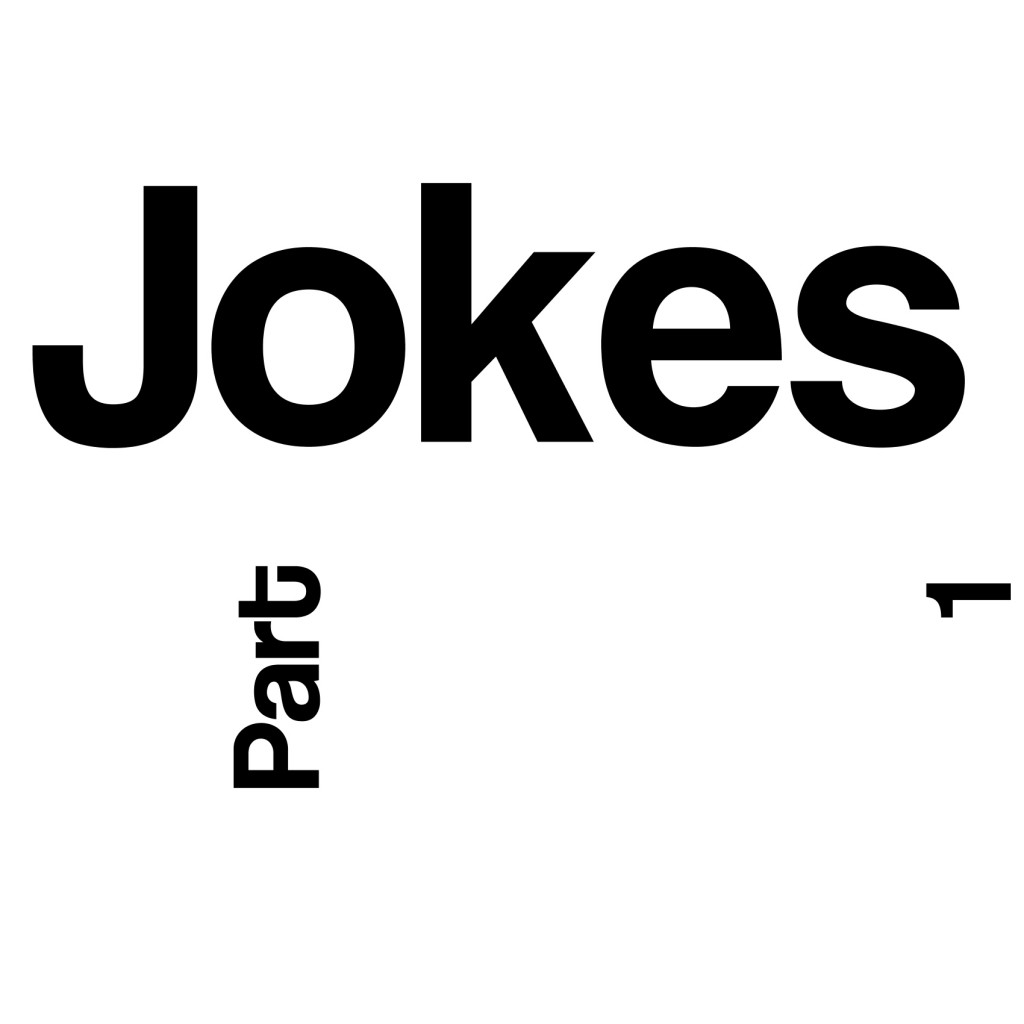
![]() [DOWNLOAD] [AUDIOBOOK OFFER] [PART 1] [PART 2]
[DOWNLOAD] [AUDIOBOOK OFFER] [PART 1] [PART 2]